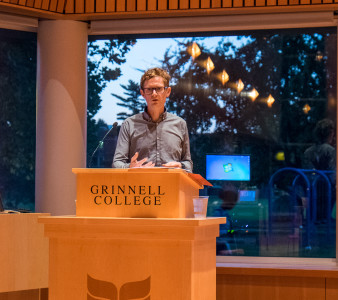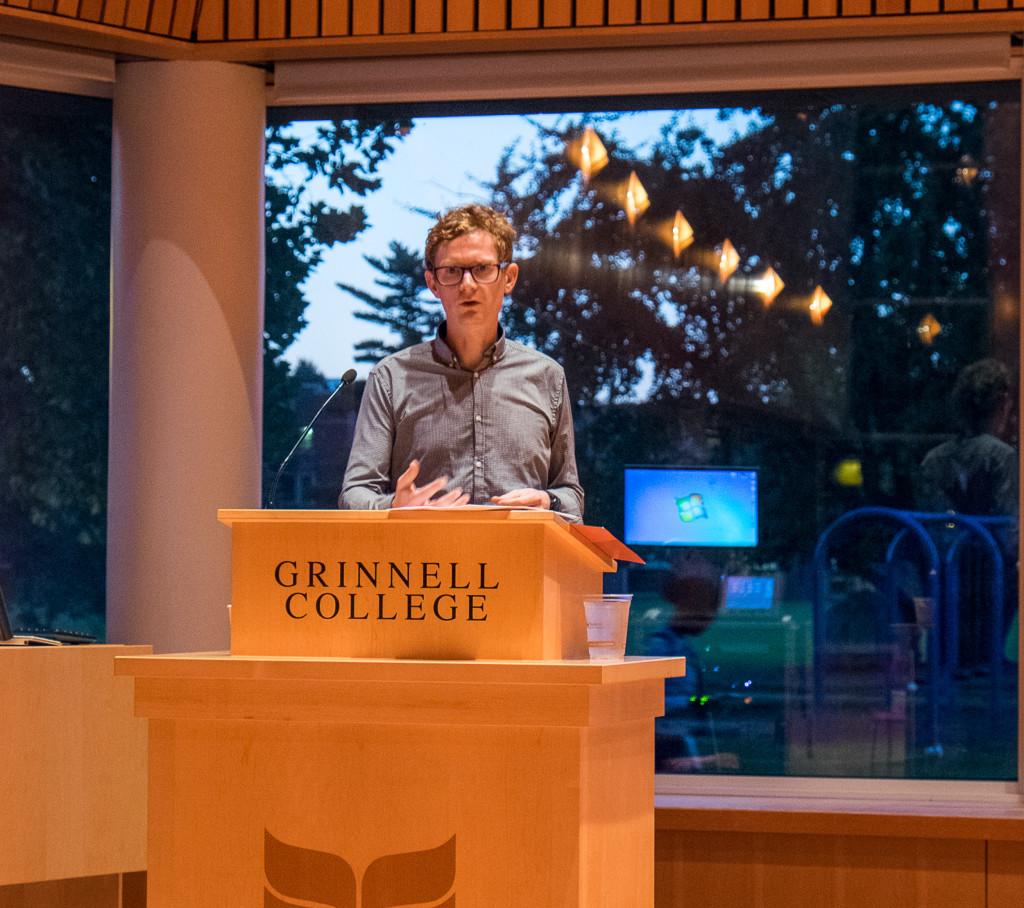
MICHAEL CUMMINGS
cummings@grinnell.edu
Students interested in human rights were given a special treat Monday evening, as the Rosenfield Program, through a partnership with the University of Iowa Center for Human Rights, brought David Keane to campus. Dr. Keane is a Senior Lecturer in Law at Middlesex University, London and his research deals with caste-based discrimination in international law.
His talk, titled “50 Years of the Convention on the Elimination of All Forms of Racial Discrimination,” focused largely on the United Nations’ document of the same name (also known as the ICERD), within the context of its 50th anniversary occurring this December.
Keane noted that, just as the United Nations is often viewed as a successor to the failed League of Nations, the ICERD can be viewed as a more successful alternative to the anti-discrimination provision within the League’s charter.
In the period between World War I and World War II, the League of Nations set up a system intended to protect minority groups. However, while ICERD is a rough successor to this system, it never explicitly references minority groups. Keane argues that this is a good thing.
“The word ‘minority’ has a really negative connotation to states. States associate minorities with secession,” Keane explained.
States, Keane argues, do not view race-based rights in the same light, so while the treaty seems to be in large part protecting minority groups, the language of “racial discrimination” instead of “minority discrimination” helped to legitimize the Treaty’s existence.
“Many states disagree with [the concept of minority rights]. They don’t recognize certain groups as having minority rights,” Keane said.
While minority groups are not named in the Treaty, Keane explained that it does lay out specific terms for what constitutes racial discrimination.
The Treaty defines racial discrimination from a legal standpoint as “… any distinction, exclusion, restriction or preference based on race, colour, descent, or national or ethnic origin …” (ICERD Article I Section I). This definition, Keane argues, gives the idea of “racial discrimination”, from a legal perspective, a much larger range than simply dealing with race itself.
The enforcing body of ICERD, the Committee on the Elimination of Racial Discrimination, has little formal power but at the same time holds a fair amount of sway over the actions of U.N. member states.
The Committee, like all of the U.N.’s nine treaty committees, is made up of a panel of independent experts. The members of the Committee are elected by states, but do not represent any particular party after they take the position.
Keane went on to explain that, at such a time as when one country is being reviewed by the Committee, any Committee members who may be from that country would excuse themselves to prevent bias in the decision.
Every U.N. member state is required to submit a report to the Committee every three years detailing how it has met the qualifications laid out in the treaty. The Committee has no judicial or punitive powers.
Rather, its goal is to open a “dialogue” with countries about problems concerning racial discrimination within their borders.
NGOs and other organizations may also submit reports to the Committee if they dispute a state’s official report.
Speaking about how he became interested in this topic, Keane said, “I was having a conversation with a friend of mine who had just gotten back from India … and then we started talking about … caste discrimination.”
Later, his research surrounding caste discrimination evolved into a broader look at racial discrimination around the world, and the ICERD in particular.
“I think that there’s an idea that racial discrimination was … something that the 20th century dealt with and in the 21st century we no longer have these issues or they’re not as important,” Keane said. “I think actually that racial discrimination is still of real importance.”





























































